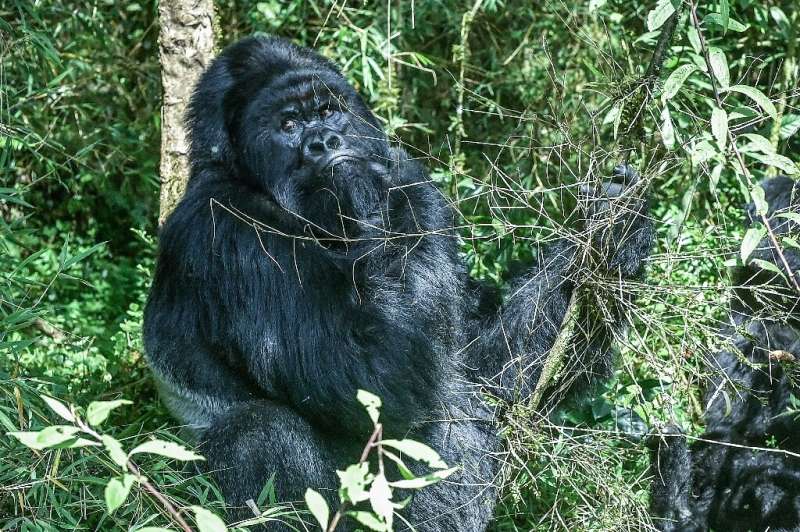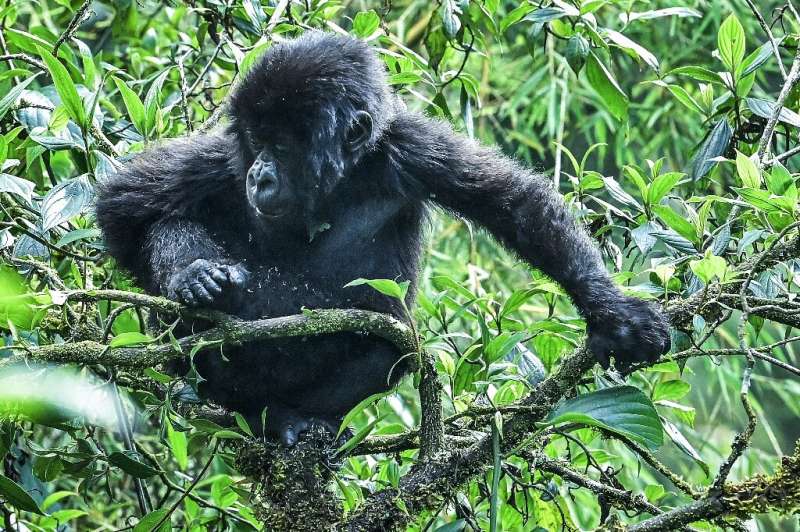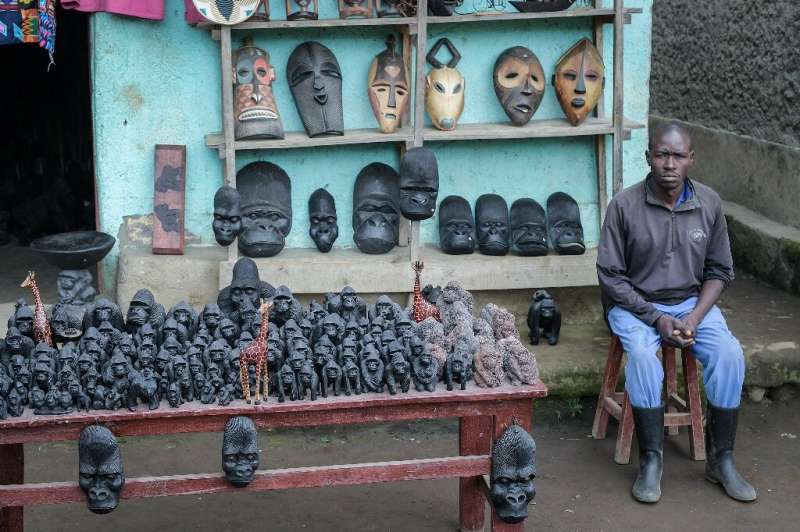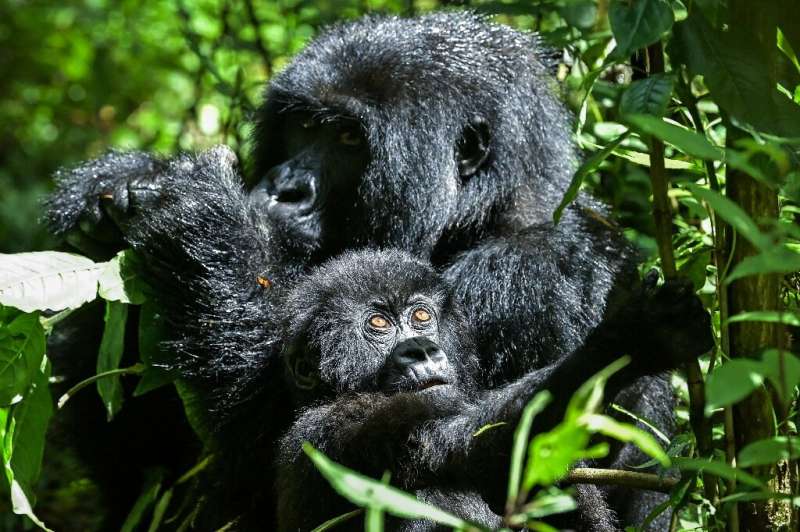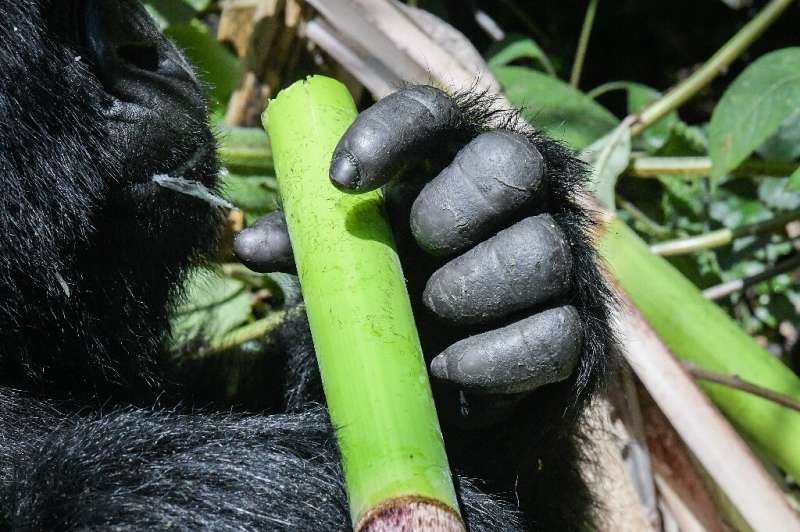
HOW VENEZUELA BECAME ONE BIG CASINO
In the midst of the country’s economic collapse, casinos—and the dollar—are king again.
Photographs by Lexi Parra
JANUARY 4, 2022
The monkey entered the casino after midnight. It clung to the arm of a short man with a military haircut. The man stood and watched the action at the roulette tables while the monkey, a capuchin with a brush cut like its owner’s, swiveled its head from side to side. A waiter fed the animal a cold french fry. Once, between spins of the wheel, the monkey leaped onto the baize table and then back into its owner’s arms.
It was a Friday night, in an affluent Caracas neighborhood called Las Mercedes, and inside the casino, which had opened a few weeks earlier, gamblers pulled crisp $100 bills off thick rolls of American cash. The same silent older women who populate casinos everywhere fed $10 and $20 bills into video slot machines. The national currency, the bolivar—named after The Liberator, Simón Bolívar, the country’s anti-imperialist founding father—was nowhere in sight. A group of men roared over wins and losses at a roulette table where the brightly colored chips cost $1 each. What passed for the high rollers in the place convened at another roulette table, where the croupier swept away as much as $1,000 in chips after each spin.
I struck up a conversation with a man who had geometric tattoos on his right forearm. We talked about how the casinos had been banned for years by Venezuela’s self-proclaimed socialist government. I asked why, all of a sudden, in the midst of the country’s catastrophic economic collapse, the government had allowed casinos to operate again. He was a gambling man—perhaps he’d had a bad night—and he gave a wry laugh behind his blue paper face mask. “For our loss,” the man said.
When I left the casino I stood for a moment on the sidewalk out front and looked up at the three large video screens mounted high on the building’s brick facade. A computer animation played over and over. It showed packs of $100 bills raining from the sky until they filled up the screens.
This is the new Venezuela, where games of chance substitute for oil wells and the image of Bolívar has been replaced by the face of a new liberating hero: Benjamin Franklin.
The late Hugo Chávez, the founder of what he called Venezuela’s Bolivarian Revolution, decried capitalism as a casino economy, and he derided casinos as a social ill akin to drug addiction and prostitution. His government forced them to close; the last one shut its doors about a decade ago. But today, under Chávez’s acolyte and successor as president, Nicolás Maduro, the whole country has become a casino, where millions are stuck in a daily, low-stakes struggle for dollar chips and a few high rollers stuff their pockets with greenbacks.
Ilived in caracas from 2012 to 2016, when I was the Andes region bureau chief of The New York Times, and I returned regularly after that, until the coronavirus pandemic interrupted travel. When I went back in November after two years away, one of the first people I spoke with was a middle-class friend who was, like nearly everyone here, having a hard time making ends meet.
“There are two Venezuelas,” my friend said. “The one where people have dollars”—he meant bank accounts full of them—“and the one where people make $5 a month.” He was exaggerating. Government workers (including his wife) currently receive a monthly salary of seven bolivars, which is equivalent to about $1.50.
Anne Applebaum: Venezuela is the eerie endgame of modern politics
Since Chávez’s death in 2013, Venezuela has gone through an extended political and economic crisis. Over eight years, the economy has shrunk by about 80 percent—an unprecedented collapse in a country not at war. The nation has experienced hyperinflation and an outflow of millions of refugees. Hyper-devaluation has left the bolivar virtually worthless. Economic sanctions by the United States, piled on by former President Donald Trump in an attempt to quickly force Maduro from power—and continued under President Joe Biden—have added to the misery. Millions of people go hungry. The United Nations World Food Programme estimated in 2020 that a third of the country’s residents were “food insecure” and in need of assistance to put enough food on the table. About 6 million people (a fifth of the pre-crisis population) have fled the country.
Maduro’s answer to the political pressure has been repression: crack down on protestors, jail opponents, manipulate elections. The most recent example occurred during my visit in November, when the Supreme Court nullified a key governor’s election, in Chávez’s home state of Barinas, that appeared to have been won by an opposition candidate. On the economic front, Maduro started out with gross mismanagement, including immense deficit spending that sent inflation soaring above 300,000 percent a year.
But recently Maduro has embarked on a different course. While maintaining his loud socialist-flavored public pronouncements, he has slashed public spending and social programs. And, with the devaluation of the bolivar, he has embraced the yanqui dollar. Today, dollars are everywhere in the street, and bolivars are scarce. Prices in most stores and restaurants are listed in dollars. Food carts have signs saying: “Hotdogs $1.”
Venezuelans call this “dollarization,” and there is a double-sided irony in the shift from bolivars to Benjamins. On the one hand, a government that proclaims itself socialist—and sees the United States as its No. 1 enemy—has encouraged the use of dollars in place of its own currency. On the other hand, the U.S. sought, through sanctions, to crush the economy and choke off Venezuela’s access to dollars by declaring an embargo against the country’s oil sales, which account for more than 95 percent of export revenue. (Venezuela has the largest oil reserves in the world.) The result, against all expectations, is a country where the dollar has become the de facto national currency.
Maduro’s decision to bring back casinos derives from the logic of a late convert to capitalism. The country saved virtually nothing during the boom years of high oil prices under Chávez. That was followed by a period of low prices and a drop in oil production, caused largely by mismanagement of the state-controlled oil industry. That devastated the nation’s bottom line and deprived the government of billions in income. Oil-export revenues were less than $8 billion in 2020, down from $94 billion in 2012.
Now Maduro is desperate for any hard currency he can get. In a dollarized country, casinos are one potential source. The first of this new wave of casinos opened about a year ago in a luxury hotel on a mountaintop overlooking Caracas. Then, in August, news leaked that the government had decided to allow 30 more casinos to open, including several in the capital. (As with many of Maduro’s economic policies, no official announcement was made.) The betting palace that I visited in Las Mercedes was among the first of these. I asked a government spokesperson for details of the arrangement with the private casino operators, including licensing fees and taxes. He told me he had requested the information and received no response. (Interview requests sent to three senior government officials also went unanswered.)
As i waited to speak with Asdrúbal Oliveros, a prominent economist, I looked out the window of a conference room in his fifth-floor office. Across the street was an enormous pit with a rusting John Deere backhoe parked halfway down a dirt ramp. I’d seen holes like this one all over the country, construction projects abandoned like the nation’s hopes. To one side I could see the building that contained the offices of Raúl Gorrín, a wealthy businessman with close ties to the Maduro government, who was indicted and sanctioned by the United States in connection with a multibillion-dollar bribery and money-laundering scheme. Behind a high wall, and empty in the midday sun, languished the green soccer fields and tennis courts of a private school that has educated generations of the Caracas elite. And in the distance, the green expanse of the Ávila mountain loomed under a blue Caribbean sky, the city’s eternal backdrop.
Oliveros told me that after eight years of catastrophic contraction, he projects that the economy will have shrunk in 2021 by less than 1 percent. “We are entering a phase of stabilization,” he said.
Dollarization has been the biggest factor in this stabilization. Oliveros estimates that about two-thirds of retail transactions are now in dollars. Many private-sector employees are now paid in dollars. Government workers and others who are still paid in bolivars often have second and third jobs—where they earn dollars. As in the United States, app-based delivery services are booming; you can have everything from takeout food to rum to caviar delivered, usually by motorcycle, and this has provided dollar income to thousands of young men living in the slums. About $2.5 billion a year, according to Oliveros, comes in through remittances sent by refugees in other countries to relatives who stayed home. The dollar has also served as an anchor for inflation. Prices in dollars are still rising but not as rapidly as prices in bolivars.
Read: How an elaborate plan to topple Venezuela’s president went wrong
The second stabilizing factor is that a more pragmatic government has made a kind of pact with the private sector. “To the degree that you don’t get involved in politics, the government will let you be,” Oliveros said. Gone are the frequent attacks on the private sector and threats to expropriate businesses and property; the government has eliminated many of the price controls that once choked the economy and has stopped enforcing those that remain.
The government has stuck to its drastic cutbacks in public spending and has shown discipline in resisting the quick populist fixes that were once common. Maduro refrained from ordering an increase to the minimum wage ahead of gubernatorial and mayoral elections in November; he went through with an increase in fuel prices just weeks before the vote. At its peak, in 2016, government spending reached 40 percent of gross domestic product, Oliveros said. This year it could be as low as 10 percent of a much smaller economic output. Oliveros called it a spending cut that “has no historical precedent.” What it amounts to is a classic neoliberal austerity package (but more severe and with essentially no public discussion) of the kind that Maduro and his leftist cohort routinely rail against. It is common here to see images of the leftist icon Salvador Allende, the former socialist president of Chile, but the government’s current approach is more akin to the University of Chicago–inspired economic policy of the man who overthrew Allende, General Augusto Pinochet.
The other model for Maduro’s new economic vision is China. Government ministers and managers have been told that they need to make government agencies and companies more efficient and to work with the private sector, according to a former official I spoke with (who requested to remain anonymous to speak freely). The message to private companies that they are free to grow as long as they steer clear of politics also mimics the Chinese experience.
And then there is dirty money. “There is a whole structure of illicit activities, activities in a gray zone: smuggling gold, smuggling gasoline, extortion, money laundering, movement of illegal merchandise through ports and airports, drug trafficking,” Oliveros told me. This has turned Venezuela into a giant money-laundering machine. As the money enters the economy, it has a “multiplier effect,” Oliveros said, paying for legitimate goods and services and creating employment.
Las Mercedes, with its casino, fancy restaurants (charging New York prices), and flashy cars, is at the heart of what people here call “the Bubble”: Outside, the country might be in ruins, but tonight, we party. The Bubble serves the small elite that has persisted through the crisis, and it is the playground for the enchufados, the plugged-in set that has grown rich from official connections, which often means by paying bribes to get inflated government contracts.
And here is another irony: The effervescent economy in the Bubble, with enchufados partying in clubs, sipping expensive whiskey, shopping for designer clothes in exclusive boutiques, dropping their pets off at plush dog salons, driving new SUVs and sports cars, is partly a consequence of the U.S. sanctions intended to punish those very people. The U.S. government has sanctioned about 150 individuals tied to the Maduro government, most of them living in Venezuela. It has canceled the visas of more than 1,000 people. Many others, who have no ties to the government, have seen their U.S. bank accounts closed as financial institutions, afraid of running afoul of sanctions, avoid anything connected to Venezuela. “The sanctions have definitely made it more difficult for many people to spend their money outside the country,” said Tiziana Polesel, the president of the National Council of Commerce and Services, a private-sector business group. And if you’re barred from taking your money abroad, you have to spend it at home.
One of the most pervasive manifestations of the economic changes afoot here are the stores called bodegones, which sell imported goods in dollars. When I was last in Venezuela, in 2018 and 2019, the country was in chaos, there were shortages of basic goods, store shelves were often empty, and people had no money—most were broke, bolivars were scarce, and dollars were hardly used. When I returned in November after two years, the effect was dizzying. Now there were dollars everywhere and the stores were full.
Wanting to lower prices and prevent shortages, the government has looked the other way, allowing the extensive import of goods without tariffs or customs or sanitary inspections. In the bodegones, you can find giant boxes of Frosted Flakes from Costco. Bags of almonds from Trader Joe’s. Frozen organic cherries from Turkey. Beauty masks from South Korea. Whole prosciutto hams from Italy. Samsung televisions and LG washing machines. Champagne, Rioja, and whiskey galore. In a sense, the bodegones are a middle-class version of the government’s pact with the business community. The message is: Go out and spend your money and buy whatever you want; just don’t protest.
The pricing is often bizarre. Because no taxes are involved, you can buy a bottle of Johnnie Walker Black for almost half the price you would pay in New York. Some stores are known for selling appliances at cut-rate prices. “A lot of this economic activity that you see could be intended to cover up money laundering,” Polesel said. “We see it when we analyze the prices being charged for some products in the Venezuelan market and you realize that they are below what is being charged for the same product on Amazon. There you have two possible explanations. Either it’s money laundering or it’s someone who knows absolutely nothing about doing business—they’re losing money and will go out of business in two or three months.”
Either way, if you don’t have the dollars, it doesn’t matter how many $11 jars of Nutella are on how many bodegón shelves. The same goes for supermarkets, where the relaxation of price controls and the influx of imports have helped fill shelves, but at higher prices.
The result is a vast increase in inequality—the product, over several years, of Venezuela’s economic collapse, augmented by U.S. sanctions, and now the government’s unannounced austerity program. Lots of products on store shelves doesn’t mean that things are better. It only means that they appear better. By opening the floodgates to imports, the government was creating the appearance of abundance. But it is an abundance only for those who can afford it.
“Now there’s plenty of food, the supermarkets are full,” Alexandra Castellanos told me. “But what are you going to do if you don’t have money to buy?”
Castellanos lives with her husband, Ronald, and three children, in a barrio in southwest Caracas called Macarao. Ronald has severe anemia and had to leave his job as a maintenance worker in an office building. The couple receives a monthly box of subsidized food, which lasts a few days, and government benefit payments that add up to less than $10 a month.
Read: How populism helped wreck Venezuela
Ten dollars doesn’t go far in the dollarized economy. A carton of 15 eggs costs $2.50. A kilo of corn flour to make arepas, the Venezuelan staple, costs about $1. Ground beef costs about $2 a pound.
As we talked, in a dingy bakery on a noisy side street, Alexandra’s daughter, Zorángelis, sat beside us. She was a month shy of 3 years old, and she weighed 22 pounds; a doctor had told Alexandra that the girl was 10 pounds underweight. Alexandra pushed up the sleeve of her daughter’s flowered blouse and gently pinched her thin arm. “She’s not building up muscle mass,” she said.
Ronald has gotten free treatment at public hospitals for his anemia, but he needs vitamin B12 injections and other supplements that the family has to buy on its own and cannot afford.
For a while, Alexandra would take the subway to a large, open-air fruit and vegetable market and gather scraps for her family from what the vendors threw away. But so many indigent people started going to the market that fights would break out over the scraps. “People are killing each other there over garbage,” she said. She stopped going.
Before the crisis, Alexandra had steady work, and she and her family lived well. We talked about the Bubble in the wealthy, eastern part of Caracas, which people refer to simply as “the East.” She observed that the new casinos were a good thing because they would create jobs. Her eyes got bright when I described the booming restaurants and bars of Las Mercedes. “The East,” she said, “is another world.”
After i left the casino in Las Mercedes (the monkey was still there, now tucked inside its owner’s nylon bomber jacket, curious black eyes poking above the zipper), I drove a few blocks to a restaurant and nightclub called Lupe. The street was lined with muscular SUVs, several with bodyguards lounging beside them. Lupe functions as a kind of wormhole. You walk through the door and suddenly you’re in Miami, and the worries of an economically devastated Caracas are far away.
When I entered at 2 a.m., hundreds of people were crammed into the long, narrow space—men with open shirts, gold chains, and big watches, women with low necklines showing off surgically enhanced breasts. Merenguetón pounded from big speakers. Bottles of imported Scotch sat on tables. A few people managed to dance in the crush. Venezuelans are typically conscientious about wearing face masks in public, but here, other than the servers, almost no one wore a mask.
In the Bubble, a new high-end restaurant seems to open every week. On another night during my visit I attended the opening of a giant restaurant complex called MoDo. It has five kitchens; separate areas that serve French, Asian, and Mexican food; a pizza restaurant; a craft-beer bar, a cocktail bar; and a café and ice cream parlor. It employs more than 300 people, including servers, cooks, and a team of sommeliers, all paid in dollars. Waiters in blue shirts served foie gras, escargot, and duck magret, while on a stage, four young singers belted out Bruno Mars and other pop tunes, accompanied by a woman on an electric violin: You’re amazing, just the way you are.
You can find the same contrast between poor and rich neighborhoods in cities in the United States, of course, but there is still ample ground in between. Here, as the crisis grinds on, the middle class is squeezed ever thinner and the country is left with a small elite and a massive underclass. Venezuelans will tell you that the Bubble is an illusion. But it is a seductive one, like a mirage in the desert. The country has fallen so far that even a small blip seems magnified—a transformation. A slowing of the economic contraction (some economists are even more optimistic than Oliveros, predicting that production will increase this year) is a palpable change after years of free fall.
The Bubble is an illusion because only a relatively small number of people enjoy it; a few hundred people partying at Lupe is not a sign of a broad recovery. And despite their novelty, the casinos—I visited three of them over several days—were far from full. The reason is obvious: There is no tourism, and very few Venezuelans have the extra money to blow at the blackjack table. But the Bubble is also an illusion because it’s a splurge of consumerism built on the government’s willingness to allow cheap imports and on its rapprochement with the private sector. How long that will last is anyone’s guess.
But for now, the party goes on.
I spoke to a bon vivant and influencer who is a fixture on the invite list for society parties, restaurant openings, product launches, and promotional events. After some slow years, the pace of life has accelerated again. He described the recent opening of a new steak house, where top-shelf booze and bubbly flowed until 4 a.m. “They threw the house out the window,” he said, using a phrase for unrestrained spending. “We’re coming from a time when you would go to an event and all of a sudden they’d say, ‘We ran out of booze.’ Not anymore.”
William Neuman is the author of Things Are Never So Bad That They Can't Get Worse: Inside the Collapse of Venezuela. A former reporter and foreign correspondent for The New York Times, he served as the paper's Andes Region Bureau Chief from 2012 to 2016.







